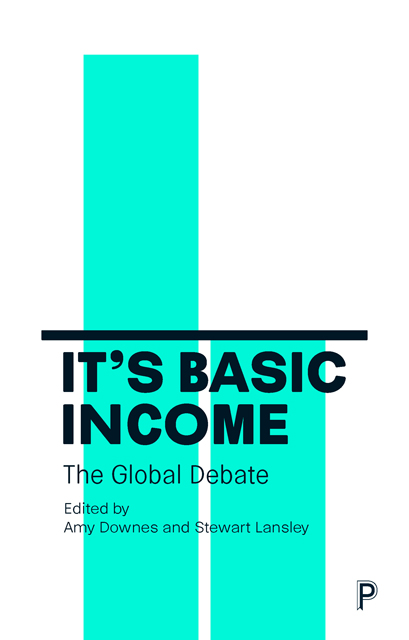25 - Basic income and the democratisation of development in Europe
Published online by Cambridge University Press: 11 April 2023
Summary
‘All that is needed is a change of mind-set, so that it can become accepted that basic income is a form of universal security like public education and health.’
In this chapter I discuss how the proposal for basic income (BI) – a subsistence grant paid regularly and permanently, or for life, to every resident of a given political territory – is a humanist and democratic reform, and as such not necessarily radical. Many contemporary arguments set up the case for basic income as an alternative to systems we know, to make the case more compelling. One such narrative is the idea that BI is a radical replacement of the welfare state. For instance, basic income has been classically presented as a freedom-orientated alternative to ways social democracy seeks to transform (control) man and promote consumption. More recent arguments situate basic income as a source to reinvent the capitalist system, by promoting self-help, a smoothing of consumption, or a form of adaptation to displacement of socially organised work by forces of automation. A version of the portrayal of basic income as a systemic shift towards self-organising society has been presented recently by the founder of Facebook, Mark Zuckerberg, when he argued basic income on a mode of Alaska’s resources dividend offers a form of alternative welfare, and a smaller state.
The problem with Zuckerberg’s vision – as well as with the portrayal of basic income as an alternative to social democracy – is that a too polarised view of the role of the state and of public versus private ownership is entailed. Zuckerberg mentions state support of private fishing in Alaska as an example of a way smaller government can support self-help. But if state support of fishing stock may be a good example of state development policy this does not make development policy an alternative to universal welfare or to regulatory approaches to promote rights in formal employment. Historically, public ownership and a strong fiscal nexus has been the background for combining these forms of public policy in continental European welfare states.
- Type
- Chapter
- Information
- It's Basic IncomeThe Global Debate, pp. 128 - 135Publisher: Bristol University PressPrint publication year: 2018



